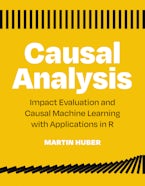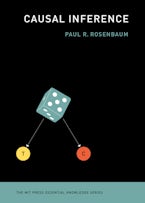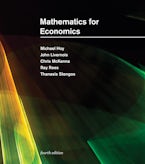The authors have proposed a very interesting voting method to remedy the well-known defects in standard methods, such as plurality voting. It requires the voters to express their preferences in a simple and easily comprehensible way, and the authors supply evidence that the candidate chosen by their methods is a reasonable selection. This work may well lead to a useful transformation in election practice.
Kenneth J. Arrow, Joan Kenney Professor of Economics and Professor of Operations Research, Emeritus, Stanford University; Nobel laureate in Economics (1972)
Michel Balinski has done it again! He has produced—this time with Rida Laraki—a beautiful, comprehensive, conceptually deep, and utterly sound treatise on the mechanics of democracy. By no means an abstruse, ivory-tower exercise in pure math, the work is supported by a plethora of in-depth empirical analyses taken from real life. Most important, the book introduces a vital new idea that promises to revolutionize democratic decision making: 'judging' rather than voting. Enjoy—while learning.
Robert Aumann, Professor Emeritus of Mathematics, Center for Rationality, The Hebrew University of Jerusalem; Nobel laureate in Economics (2005)
An outstanding achievement: a critically important issue dealt with original insight and presented in a manner that was both accessible to the general intelligent reader and rigorously reasoned for the mathematically sophisticated one.
Robert J. Frey, CEO and Founder, FQS Capital Partners, LLC, Research Professor, Stony Brook University
Finding a way to consolidate the different views of many individuals into a single outcome is a fundamental problem common to areas as diverse as voting for president or judging skaters. When the individual views are expressed as rankings the Arrow impossibility theorem shows that any method must always lack many desirable properties. In contrast, in this revolutionary book, Balinski and Laraki show that when the individual views are expressed as grades, not rankings, simple and practical methods do exist, and they describe them.
Ralph E. Gomory, New York University; President Emeritus, Alfred P. Sloan Foundation; former Senior Vice President for Science and Technology, IBM; National Medal of Science laureate
Balinski and Laraki propose an intriguing new voting method for political elections: have voters 'grade' the candidates and elect the one having the highest median grade. The method will be controversial but deserves careful consideration.
Eric S. Maskin, A. O. Hirschman Professor of Social Science, Institute for Advanced Study; Nobel laureate in Economics (2007)
This could be the most important work on the problem of collective choice since 1951, or even since 1785. It is written with wit and precision, and, fittingly for work done in France, it shows that wine judges have come closest to finding practical solutions to the problem.
Iain McLean, Professor of Politics, University of Oxford
Majority Judgment is a work of astonishing originality, with remarkable depth and range. The authors rethink in fundamental ways the theory of social choice, recasting it on the basis of evaluations rather than preferences. It will appeal to mathematicians, philosophers, and economists interested in the abstract theory of social choice; political scientists and election reformers looking for better methods of voting; psychologists, educators, and measurement theorists; and officials of organizations (such as the Olympics) who want to improve any competition evaluated by subjective judgments rather than objective measures.
Jack Nagel, Steven F. Goldstone Endowed Term Professor of Political Science, University of Pennsylvania
This is an important book destined to provoke considerable controversy. Inspired by a deep understanding of practice—ranking students, skaters, wines—it goes beyond impossibility theorems to constructively challenge the dominant approach to the design of voting procedures with a new theory, supported by extensive experimental evidence.
Martin Shubik, Seymour Knox Professor Emeritus of Mathematical Institutional Economics, Yale University
It is only rarely that a book breaks major new ground in a field, and this is one of those books. I am confident that it will be regarded as a classic—one that will be widely read for decades to come. I also expect that it will help open up an entirely new research agenda in social choice theory and practice.
John A. Weymark, Professor of Economics, Vanderbilt University; former President, Society for Social Choice and Welfare
In this path-breaking book, Balinski and Laraki make the case for a fundamentally new approach to voting, in which voters evaluate candidates in terms of a common language rather than simply ranking them. This is a highly original work that challenges traditional social choice theory and has important implications for the design of real-world electoral systems.
H. Peyton Young, James Meade Professor of Economics, University of Oxford












